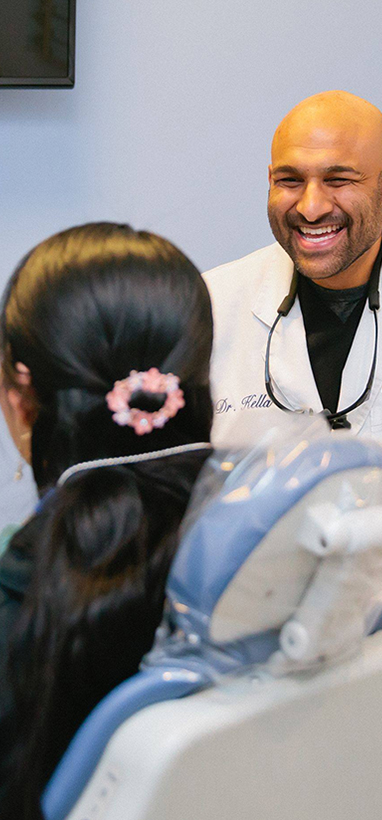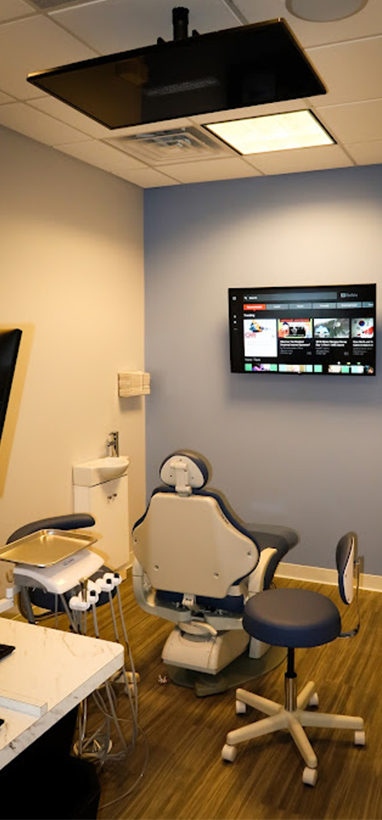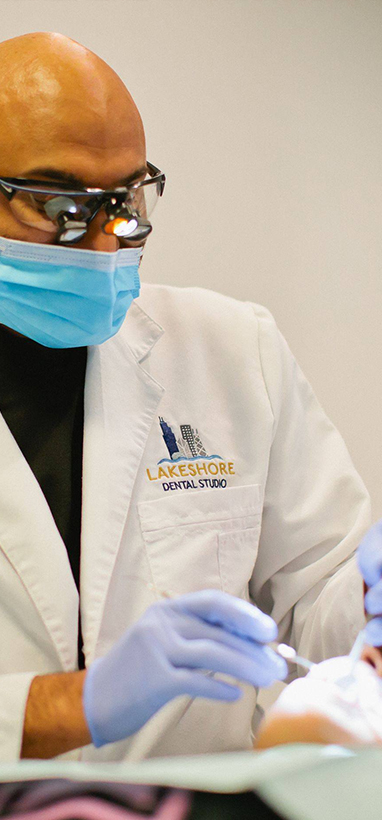5505 N. Clark Street Chicago, IL 60640

The Essential Guide To Caring For Dental Implants: What You Need To Know

Whether you have just recently gotten dental implants or are considering it as an option, it’s essential to understand the care that’s needed to maintain them. In this article, we’ll discuss the basics of caring for your dental implants, from brushing and flossing to knowing when it’s time to schedule a check-up with your dentist. Learn how taking proper care of your implants can help ensure a lifetime of beautiful smiles!
What are Dental Implants?
Dental implants are artificial tooth root replacements that are used to support a dental prosthesis, such as a denture, bridge, or crown. They are made of titanium, which is a biocompatible material that integrates with the jawbone. Dental implants can be used to replace one or more missing teeth and can also be used to support a full set of dentures.
The first step in getting dental implants is to consult with your dentist or oral surgeon to see if you are a candidate for the procedure. Once it has been determined that you are a good candidate for dental implant treatments, the next step is to have a consultation with an implant dentist or oral surgeon. During this consultation, they will assess your mouth and jawbone to determine the best placement for your dental implants. They will also develop a treatment plan and give you an estimate of the cost of the procedure.
Once the placing and treatment plan have been determined, the next step is to have surgery to place the dental implants. This surgery is typically done under local anesthesia in an outpatient setting. During this surgery, small incisions will be made in your gums and/or jawbone in order to place the titanium implant posts into your mouth. Once these posts are in place, they will need time to fuse with your bone and heal before the next stage of treatment can begin.
After your implants have healed, you will return to the implant dentist or oral surgeon in order to have them placed.
Benefits of Dental Implants
Dental implants are a popular tooth replacement option for many people. They offer many benefits over other options, such as dentures or bridges. Here are some of the benefits of dental implants:
1. Dental implants look and feel like natural teeth.
2. Dental implants are permanent and will not move around like dentures can.
3. Dental implants do not require special care or cleaning routines – you can brush and floss them just like your natural teeth.
4. Dental implants are strong and durable, and can last a lifetime with proper care.
5. Dental implants can help to preserve the jawbone and prevent deterioration that can occur with missing teeth.
Caring for Dental Implants
Dental implants are a great way to improve your smile and confidence. However, they require special care to ensure that they last for many years. Here are some tips on how to care for your dental implants:
1. Brush and Floss Regularly:
Just like your natural teeth, you need to brush and floss your dental implants daily. This will help remove plaque and bacteria from around the implant and prevent gum disease.
2. Avoid Hard Foods:
Be careful with hard foods like candy or nuts, as they can damage your dental implants. Chew slowly and thoroughly to avoid putting too much pressure on the implant.
3. See Your Dentist Regularly:
It’s important to see your dentist at least once a year for a cleaning and checkup. They will be able to spot any problems early on and help keep your implants in good shape.
Common Mistakes to Avoid when Dealing with Dental Implants
When it comes to dental implants, there are a few common mistakes that patients often make that can lead to problems down the road. Here are a few of the most common mistakes to avoid when dealing with dental implants:
1. Not Cleaning Them Properly
Just like your natural teeth, your dental implants need to be brushed and flossed daily in order to avoid plaque build-up and infection. Be sure to use a soft-bristled toothbrush and non-abrasive toothpaste, and take care not to brush too harshly.
2. Not Using the Right Type of Mouthwash
You should avoid using mouthwashes that contain alcohol, as they can dry out your mouth and lead to increased plaque build-up. Instead, look for mouthwashes that are specifically designed for use with dental implants.
3. Eating Hard or Crunchy Foods Too Soon After Surgery
It’s important to give your implant site time to heal properly before eating any hard or crunchy foods, as this can damage the implant or cause it to become loose. Stick to soft foods for at least the first week after surgery, then gradually introduce harder foods back into your diet as tolerated.
4. Skipping Follow-up Appointments with Your Dentist/Oral Surgeon
Once you’ve had dental implants placed, it’s important to see your dentist or oral surgeon regularly for follow-up appointments in order to ensure that they are healing properly.
How to Choose a Dentist for Your Dental Implant Procedure
Choosing a dentist for your dental implant procedure is an important decision. There are many factors to consider when making this decision, and it is important to choose a dentist who is experienced and qualified to perform the procedure.
Here are some tips on how to choose a dentist for your dental implant procedure:
1. Look for a board-certified oral and maxillofacial surgeon. These surgeons have the training and experience necessary to safely and effectively place dental implants.
2. Choose a dentist who has experience placing dental implants. Be sure to ask how many implants the dentist has placed, and ask to see before-and-after photos of previous patients.
3. Ask about the type of anesthesia that will be used during the procedure. You should feel comfortable with the anesthesia plan that is recommended by the dentist.
4. Make sure you understand all of the risks and benefits associated with dental implants before having the procedure. Be sure to ask questions if anything is unclear.
5. Get a second opinion from another qualified oral surgeon or periodontist before having the procedure done. This will help ensure that you are making the best decision for your oral health.
Taking proper care of your dental implants is essential for ensuring that they remain in good condition and continue to function properly for years to come. We hope that this guide has given you the information necessary to maintain your dental implants and keep them looking their best. With the right care, you can enjoy healthy, beautiful teeth for many years to come!
FAQs:
Q: How often should I brush my dental implants?
A: You should brush your dental implants twice a day, just like you would your natural teeth. Make sure to use a soft-bristled toothbrush and non-abrasive toothpaste.
Q: Should I floss my dental implants?
A: Yes, flossing is an important part of caring for your dental implants. Use a floss threader to help you get the floss between the implant and the gum line.
Q: How should I care for my dental implants at night?
A: You should brush your implants before going to bed and use an antibacterial mouthwash to help reduce bacteria in the mouth. You may also want to consider wearing a night guard to protect your implants from grinding or clenching of the teeth.












